

There have been multiple explosions and fires at key ports in Syria
According to a Syrian security source quoted by Reuters, Israel struck Syria's key port city of Latakia on Monday (December 9). The attack came a day after the end of the Assad regime.
Ambrey, a British maritime security consultancy, said there had been multiple explosions and fires at both the container terminal and military port in Latakia and advised ships to stay away from Syrian territorial waters.
Israeli forces reportedly attacked Syrian naval vessels in Latakia and Tartus, destroying much of the country's fleet. The IDF acknowledged responsibility for the attack in a statement, saying it had targeted assets at sea and ashore in Syria.
No casualties have been reported. Lloyd's Daily intelligence data shows there were no commercial vessels in Latakia at the time of the attack. However, ships often turn off AIS when calling at the port, which makes port call data unreliable.
Last week, Syrian rebels entered the capital, Damascus, routing government forces and toppling the regime of former Syrian President Bashar al-Assad. Kremlin sources said Assad and his family had left Syria and were now in the Russian capital Moscow.
Citing concerns for its security given the nature of Syria's new leadership, Israel moved quickly to destroy the remaining vehicles, aircraft and ships of the Syrian armed forces, carrying out more than 300 airstrikes in 48 hours. Israeli Prime Minister Benjamin Netanyahu also vowed to completely annex the Golan Heights, a strategic military point.
This political upheaval in Syria has left the country in a power vacuum, and international commercial shipping may shun Syria for safety for a long time to come.
According to TankerTrackers analysts pointed out that the Suez type tanker "Lotus" turned around in the Gulf of Suez on the 8th local time. The tanker was supposed to carry 750,000 barrels of Iranian crude oil to Syria, but is now returning to Iran. Oil analysis firm Kpler said that since early 2020, the Lotus has regularly delivered Iranian crude oil to Syria's only coastal refinery, the Baniyas refinery.
Over the years, major shipping companies have tried to carry out a number of operations in Syria, but due to various reasons such as international sanctions, they have been hindered to varying degrees. In November 2023, Maersk said in a statement that they had decided to stop all business activities in Syria due to challenges in complying with Western sanctions.
After the end of the Assad regime, the Indian government also advised its seafarers to avoid travelling to Syria. In a recent notice, the Directorate General of Shipping of India said that in view of the unpredictable circumstances, any previous commitments and obligations related to the shift of Syrian crew should be immediately reassessed and postponed, and also advised shipowners and ship agents to avoid, as far as possible, the docking of vessels in Syrian ports to prevent any potential risks that could affect the safety of vessels and their crews; Loading and unloading operations should also take place in other ports in the region that are currently "stable and suitable for maritime activities."
At present, commercial activity in Syria's ports has come to a standstill. In addition, the sanctions imposed by the United States on Syrian oil tankers have worsened the country's already severe fuel shortages and economic problems. The Klingendaal Institute in the Netherlands has written about the reconstruction process in Syria, where the economic situation and financial revenues continue to deteriorate under the sanctions imposed by the United States.
On September 11 local time, the Office of Foreign Assets Control (OFAC) of the US Department of the Treasury issued a notice stating that parties shipping oil to the Syrian government face a significant risk of US sanctions. OFAC has imposed sanctions on Al-Qatirji Co, a Syrian company, as well as 26 companies, individuals and vessels linked to the company. Katilji is known to be helping Iran sell oil to Syria.
However, shipping industry experts believe that the shift in supply patterns after the fall of the Assad regime could boost the Mediterranean tanker market, especially the fuel situation in Syria.
Braemar, a ship broker, said the departure of President Bashar al-Assad could mean the lifting of US sanctions. And once sanctions are lifted, Syria will be able to buy oil from the global market to ease fuel shortages and meet the needs of its refineries in Homs and Baniyas. The oil could come from Libya, Turkey or further afield and be transported by mainstream tankers.
"But there will still be obstacles, such as Syria's dire financial situation, including a $30 billion debt to Iran and an estimated $200 billion in post-war reconstruction costs," Brema stressed.
But Brema said the figure may not cover all imports due to a general ban on ship tracking signals (AIS) for some tankers to avoid sanctions. TankerTrackers estimates current Syrian imports at 60,000 barrels per day.
Syria's own oil production is already severely deficient due to poor economic conditions, war and earthquakes.

Ambrey, a British maritime security consultancy, said there had been multiple explosions and fires at both the container terminal and military port in Latakia and advised ships to stay away from Syrian territorial waters.
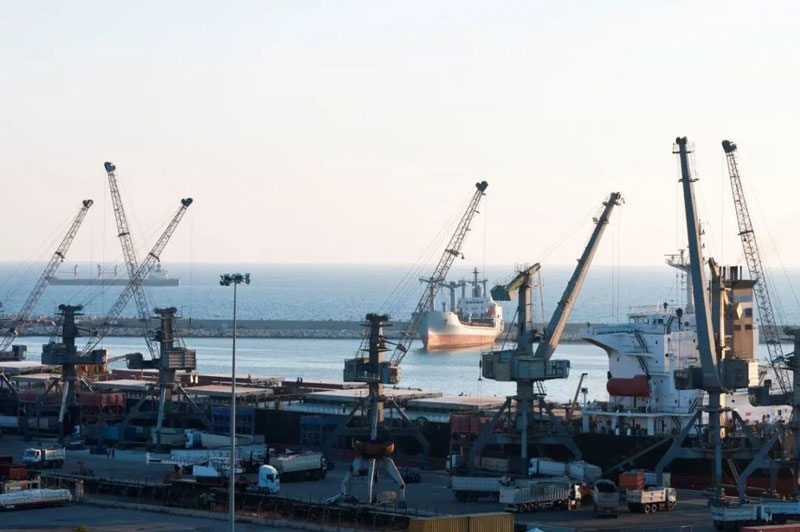
Port of Latakia
Israeli forces reportedly attacked Syrian naval vessels in Latakia and Tartus, destroying much of the country's fleet. The IDF acknowledged responsibility for the attack in a statement, saying it had targeted assets at sea and ashore in Syria.
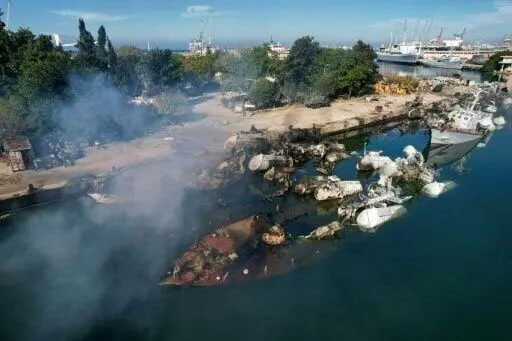

The bombed Syrian naval fleet
No casualties have been reported. Lloyd's Daily intelligence data shows there were no commercial vessels in Latakia at the time of the attack. However, ships often turn off AIS when calling at the port, which makes port call data unreliable.
Last week, Syrian rebels entered the capital, Damascus, routing government forces and toppling the regime of former Syrian President Bashar al-Assad. Kremlin sources said Assad and his family had left Syria and were now in the Russian capital Moscow.
Citing concerns for its security given the nature of Syria's new leadership, Israel moved quickly to destroy the remaining vehicles, aircraft and ships of the Syrian armed forces, carrying out more than 300 airstrikes in 48 hours. Israeli Prime Minister Benjamin Netanyahu also vowed to completely annex the Golan Heights, a strategic military point.
This political upheaval in Syria has left the country in a power vacuum, and international commercial shipping may shun Syria for safety for a long time to come.
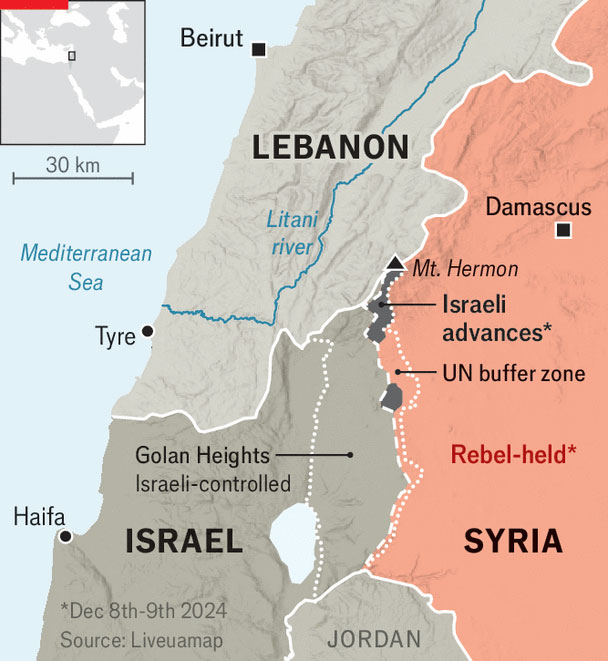
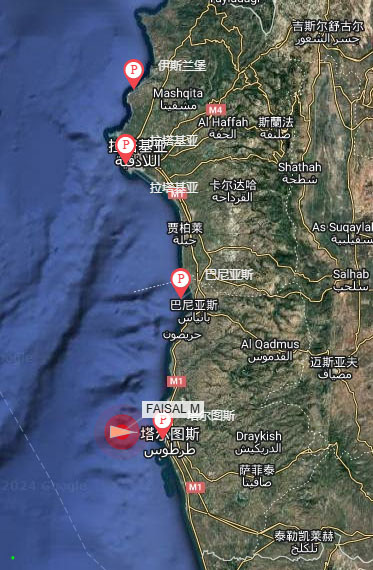
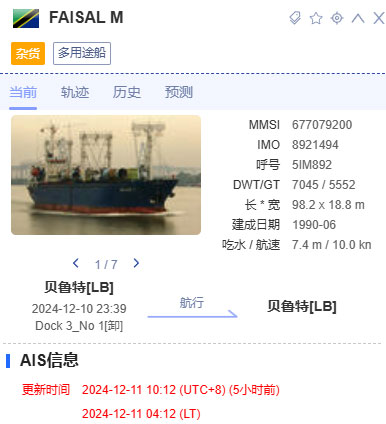
According to TankerTrackers analysts pointed out that the Suez type tanker "Lotus" turned around in the Gulf of Suez on the 8th local time. The tanker was supposed to carry 750,000 barrels of Iranian crude oil to Syria, but is now returning to Iran. Oil analysis firm Kpler said that since early 2020, the Lotus has regularly delivered Iranian crude oil to Syria's only coastal refinery, the Baniyas refinery.
Over the years, major shipping companies have tried to carry out a number of operations in Syria, but due to various reasons such as international sanctions, they have been hindered to varying degrees. In November 2023, Maersk said in a statement that they had decided to stop all business activities in Syria due to challenges in complying with Western sanctions.

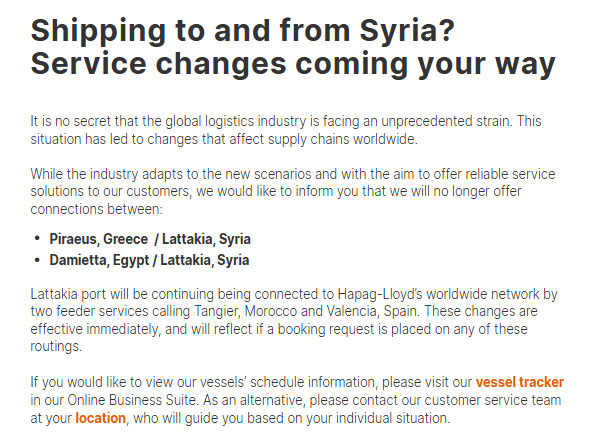
After the end of the Assad regime, the Indian government also advised its seafarers to avoid travelling to Syria. In a recent notice, the Directorate General of Shipping of India said that in view of the unpredictable circumstances, any previous commitments and obligations related to the shift of Syrian crew should be immediately reassessed and postponed, and also advised shipowners and ship agents to avoid, as far as possible, the docking of vessels in Syrian ports to prevent any potential risks that could affect the safety of vessels and their crews; Loading and unloading operations should also take place in other ports in the region that are currently "stable and suitable for maritime activities."
At present, commercial activity in Syria's ports has come to a standstill. In addition, the sanctions imposed by the United States on Syrian oil tankers have worsened the country's already severe fuel shortages and economic problems. The Klingendaal Institute in the Netherlands has written about the reconstruction process in Syria, where the economic situation and financial revenues continue to deteriorate under the sanctions imposed by the United States.
On September 11 local time, the Office of Foreign Assets Control (OFAC) of the US Department of the Treasury issued a notice stating that parties shipping oil to the Syrian government face a significant risk of US sanctions. OFAC has imposed sanctions on Al-Qatirji Co, a Syrian company, as well as 26 companies, individuals and vessels linked to the company. Katilji is known to be helping Iran sell oil to Syria.
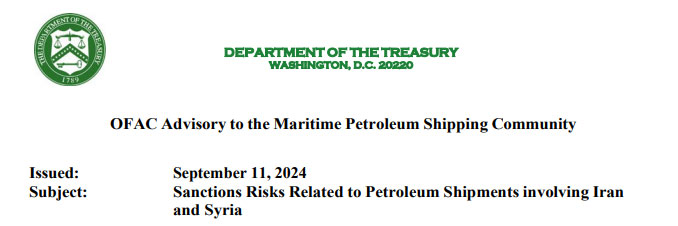
However, shipping industry experts believe that the shift in supply patterns after the fall of the Assad regime could boost the Mediterranean tanker market, especially the fuel situation in Syria.
Braemar, a ship broker, said the departure of President Bashar al-Assad could mean the lifting of US sanctions. And once sanctions are lifted, Syria will be able to buy oil from the global market to ease fuel shortages and meet the needs of its refineries in Homs and Baniyas. The oil could come from Libya, Turkey or further afield and be transported by mainstream tankers.
"But there will still be obstacles, such as Syria's dire financial situation, including a $30 billion debt to Iran and an estimated $200 billion in post-war reconstruction costs," Brema stressed.
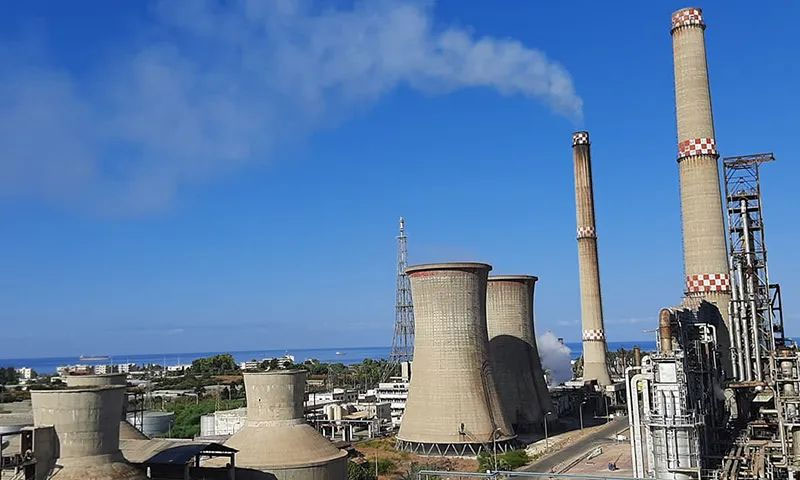
But Brema said the figure may not cover all imports due to a general ban on ship tracking signals (AIS) for some tankers to avoid sanctions. TankerTrackers estimates current Syrian imports at 60,000 barrels per day.
Syria's own oil production is already severely deficient due to poor economic conditions, war and earthquakes.





